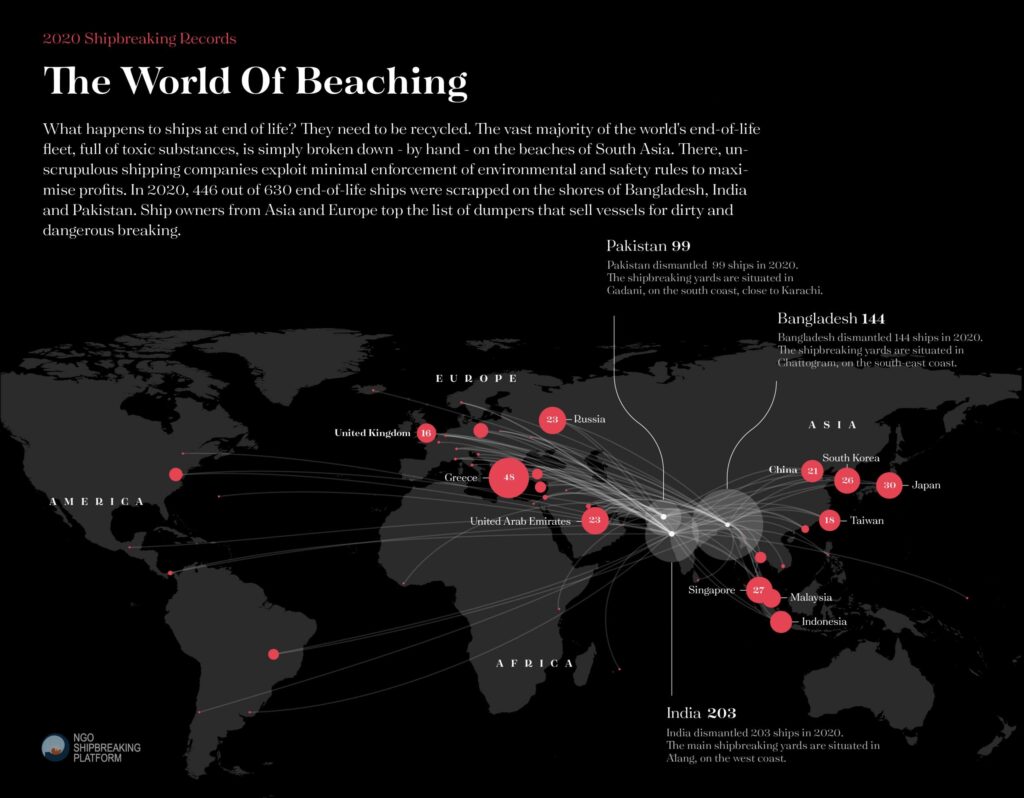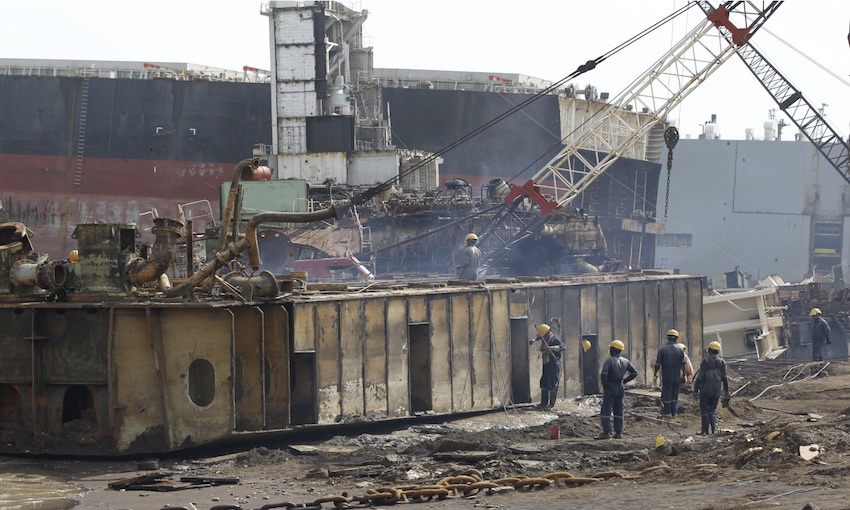ACCORDING to new data released by the NGO Shipbreaking Platform, 630 ocean-going commercial ships and offshore units were sold to the scrap yards in 2020. Of these vessels, 446 large tankers, bulkers, floating platforms, cargo- and passenger ships were broken down on three beaches in South Asia, amounting to nearly 90% of the gross tonnage dismantled globally.
Ships are considered hazardous waste under international environmental law as they contain many toxic materials and substances within their structures, and onboard as residues. These toxins include, amongst others, cadmium, lead batteries, asbestos, mercury, ozone depleting substances, PAHs, and residue oils, which all need to be managed in a safe and environmentally sound manner. Their export from developed to developing countries is banned by UNEP’s Basel Convention.
According to NGO Shipbreaking Platform, workers – often exploited migrants, some of them children – are exposed to immense risks.
Last year, at least 10 workers lost their lives when breaking apart vessels in Bangladesh. At least another 14 were severely injured. Despite repeated attempts to obtain official statistics, no information on accidents at the Indian and Pakistani yards has been made available.
Ingvild Jenssen, executive director and founder of NGO Shipbreaking Platform said, “It is a scandal that laws and standards aimed at protecting people and the environment are ignored when scrapping the near totality of the global fleet.
“Governments, the clients, financiers and insurers of shipping, as well as the employees of shipping, need to take a much stronger stance against this exploitation of vulnerable communities and fragile ecosystems.”
Greece tops the list of countries in 2020, selling 48 ships for scrapping in South Asia, most of which were beached in Bangladesh and Pakistan.
“Whilst some EU member states are increasingly cracking down on environmental crime, almost a quarter of the tonnage broken in South Asia was owned by European shipping companies. Greece in particular has systematically closed its eyes to the deplorable end-of-life track record of its shipping industry,” Ms Jenssen said.
But the ‘worst corporate dumper’ prize goes to South Korean company Polaris Shipping. Under pressure following serious incidents on the Stellar Daisy, which sank in the Atlantic with the loss of 22 lives in 2017, and on the Stellar Banner, which was scuttled off the coast of Brazil in June, Polaris Shipping scrapped 11 of its carriers in 2020. All units were beached in Bangladesh and Pakistan.
Whist European shipping companies own 40% of the world fleet, only 5% of end-of-life ships were registered under an EU/EFTA flag in 2020.
“Flags known for their poor implementation of maritime law have always been particularly popular at end-of-life,” said Ms Jenssen.
“Shipowners hiding behind anonymous post box companies set up by cash buyers and backed by blacklisted flag registries is a reality that begs for the introduction and enforcement of measures that effectively hold the real beneficial owners of the vessels responsible,” she said.
Nicola Mulinaris, communication and policy officer at the NGO Shipbreaking Platform said, “We applaud companies, such as Carnival Corporation, that have a responsible policy for the recycling of their vessels ‘off the beach’.
“Now, we call upon policy makers to adopt effective measures, such as a return-scheme for ships, that will incentivise more owners to recycle their assets in a sustainable manner.”


